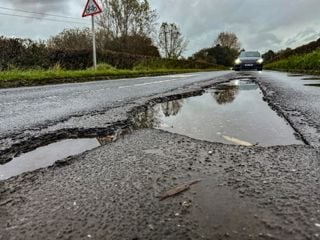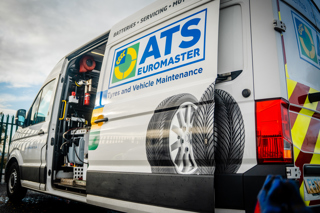New research from Kwik Fit has found that one in five car owners have had to replace a tyre in the last year due to damage to the sidewall, rather than through tread wear.
As a result of this damage to sidewalls, drivers across the country are spending more than £439million a year replacing otherwise perfectly healthy tyres.
The study for Kwik Fit, the UK’s leading automotive servicing and repair company, found that the most common cause of sidewall damage is hitting a pothole.
While in many cases this can’t be avoided, some drivers have only themselves to blame – admitting that their tyres have been damaged as a result of bashing into a kerb.
In the last two years, more than half (53%) of all car owners say that their tyres or wheels have suffered damage, while 22% say they have hit a pothole, while half that number (11%) experienced damage after hitting debris on the road.
It’s not just the state of the road surface that has caused a problem - one in ten (10%) admit to having hit a kerb while parking, slightly more than the 9% who have hit a kerb while driving. And contrary to the widely perceived stereotype, women are less likely than men to have hit the kerb when parking (10% v 11%).
Sheer forgetfulness has proved expensive for the 4% of drivers who say that their tyre wall was damaged through being under inflated.
Driving any distance on a flat tyre or even one with low pressure can cause severe damage to the structure of the tyre wall, so it is vital that drivers keep their tyres inflated to the correct levels.
Despite the number of drivers having experienced damage, only one third of drivers (35%) say they check their tyres’ sidewalls every month.
In response, Kwik Fit, which is the UK’s largest retailer of tyres, is urging drivers to regularly check their tyres with three things in mind.
Roger Griggs, communications director at Kwik Fit, says: “We recommend that drivers check their tyres every week, and certainly before making a long journey.
“Drivers should check pressure, tread and sidewalls. These factors are all interlinked – the wrong pressure will lead to uneven tread wear and can damage the sidewalls.
“As a result they will shorten the life of a tyre, leading to unnecessary cost, but more importantly reducing the tyre’s road holding performance.”



















Login to comment
Comments
No comments have been made yet.